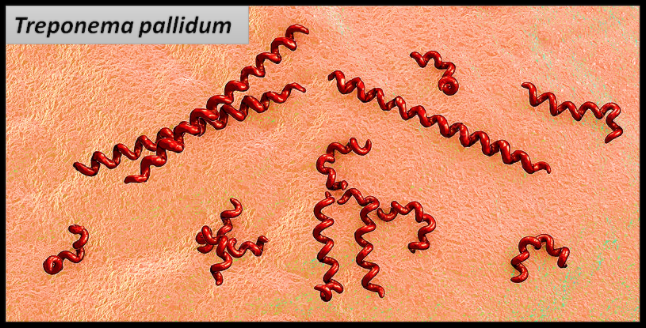Question
Question: _Treponema pallidum_ is a cause of (a) Leprosy (b) Plague (c) Syphilis (d) Pertussis...
Treponema pallidum is a cause of
(a) Leprosy
(b) Plague
(c) Syphilis
(d) Pertussis
Solution
Treponema pallidum is a cause of a sexually transmitted disease. The symptoms usually appear on the genitals of an infected person as early as six weeks. A pregnant lady can also spread this disease to her baby.
Complete answer:
Treponema pallidum is a bacterium that causes syphilis in humans. It spreads through sexual transmission. It is a gram-negative bacteria and an obligate parasite. These spiral-shaped bacteria are microaerophilic i.e require a small amount of oxygen for survival. It enters through intact skin or abrased skin, followed by invasion and colonization in different parts of the body such as mucus membrane, central nervous system via the vascular system of blood. In syphilis, inflammation of urogenital tracts occurs and its therapy usually involves doses of antibiotics such as penicillin and tetracycline.
Additional Information: -Leprosy is caused by the bacterium Mycobacterium leprae. The first symptoms upon infection usually show up in 2 to 5 years and thus, considered as the slowest infectious and contagious pathogen. Leprosy is marked by skin lesions with red patches and numbness due to nerve damage.
-Plague is caused by Yersinia pestis spread through the contact and bite of rat fleas, a parasite of rodents. Its incubation period is 2 to 5 days. The affected person experiences high fever, chills, deteriorating respiratory system that may lead to blood in cough if left untreated.
-Bordetella pertussis causes pertussis in humans which is a highly infectious disease and may spread through suspended droplets of cough in the air. The symptoms include coughing fits followed with a high pitch ‘whoop.’ The incubation period of the bacterium is one to two weeks.
So, the correct answer is ‘Syphilis’.
Note: -DPT is a combinational vaccine against three infectious diseases in humans. It includes Diphtheria, pertussis, or whooping cough, and tetanus.
-The vaccine is recommended to be given to children as young as two months and no later than seven years.

